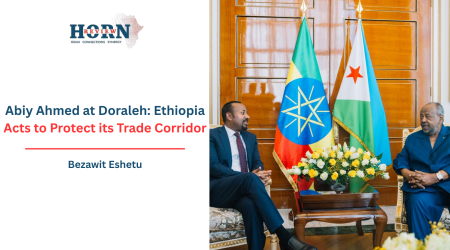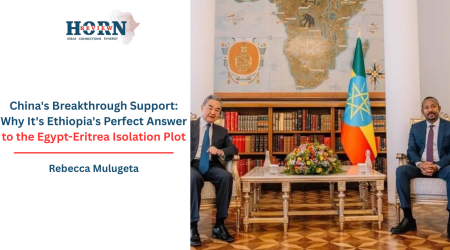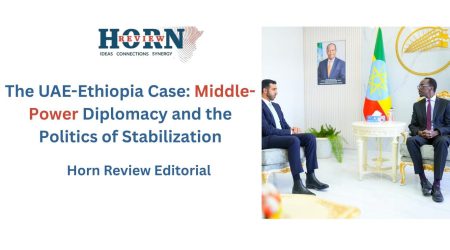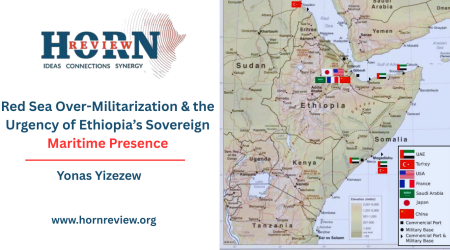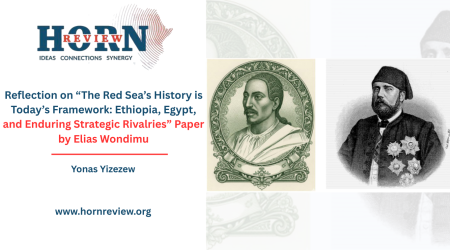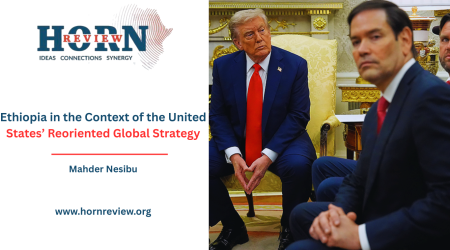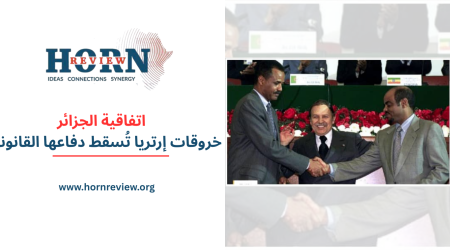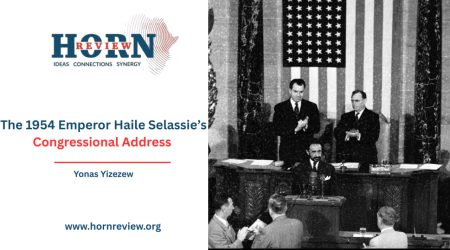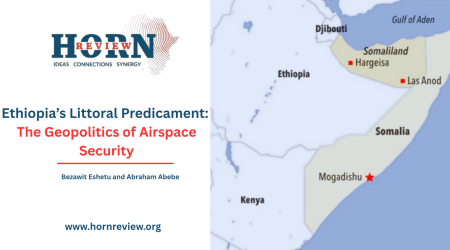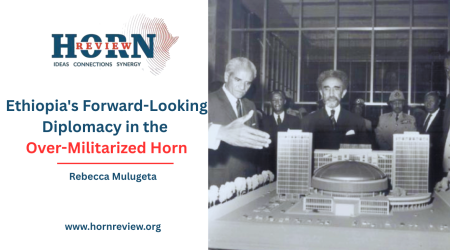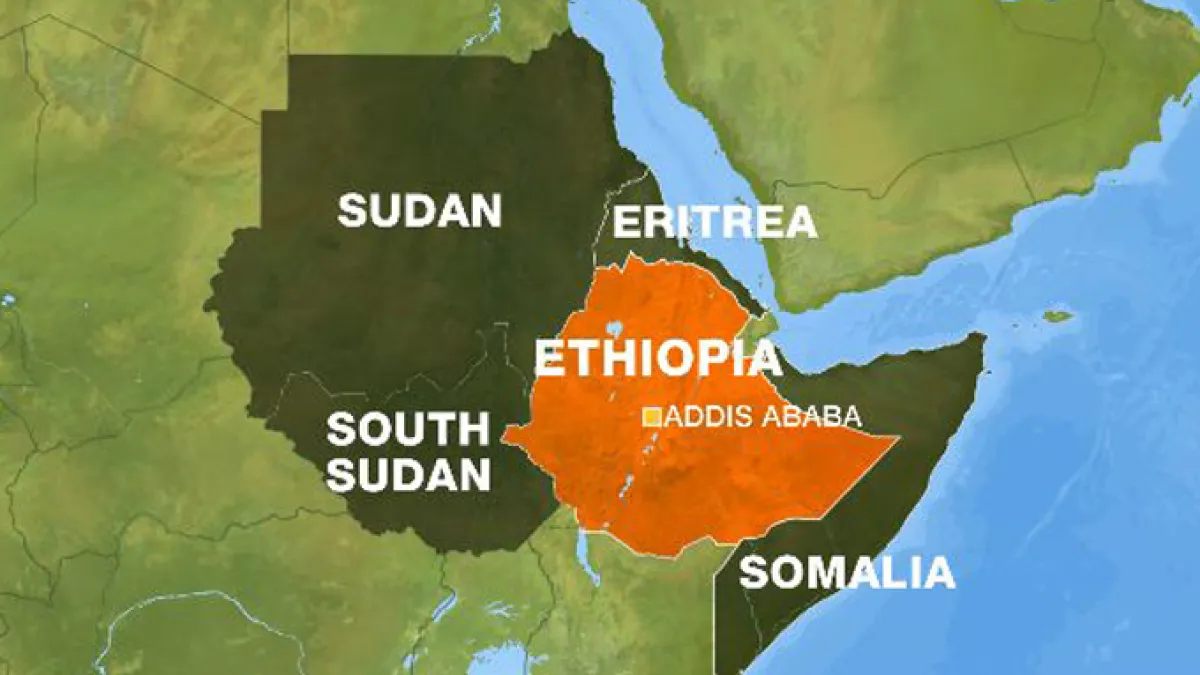
7
Jun
Crisis Next Door: Ethiopia’s Strategic Uncertainties in Sudan’s Turmoil
Ethiopia’s top-level delegation flew to Port Sudan on June 2, 2025. Led by intelligence chief Redwan Hussein and East African affairs adviser Getachew Reda, the visit was a calculated foreign policy move – an expression of Ethiopia’s evolving approach to Sudan’s shifting security dynamics. It was a defensive overture aimed at insulating Ethiopia’s layered national interests amid the Horn of Africa’s persistent volatility.
The timing of the visit was telling. Al-Burhan’s Sudanese Armed Forces (SAF) were making incremental gains against the Rapid Support Forces (RSF), signaling a turning point in Sudan’s conflict. Ethiopia’s outreach reflected a sober, realistic analysis of the evolving balance of power. High-level meetings between the intelligence chiefs of both nations highlighted a prioritization of security collaboration and intelligence exchange – both central to managing shared cross-border threats and growing internal fragilities.
This diplomatic initiative, however, should not be misread. It does not represent a fundamental shift in Ethiopia’s alignment, nor is it a retreat from its previously stated neutrality. Interpretations that frame Ethiopia as leaning toward the RSF oversimplify the country’s complex and layered regional policy. Earlier calls for a no-fly zone or perceived proximity to the UAE were tactical, not ideological. Ethiopia’s approach remains grounded in pragmatic self-preservation – deterring destabilizing maneuvers from Sudan, and forestalling any external meddling in its domestic affairs, particularly from Khartoum.
There are converging national interests driving Ethiopia’s calculus. First among them is the need to reinforce Sudan’s stability – not out of altruism, but as a national security imperative. Ethiopian territory cannot afford to become vulnerable to infiltration, with Sudanese territory serving as a springboard for insurgent activity. Among Ethiopia’s primary concerns is the intensifying Fano insurgency in the Amhara region and the increasingly precarious political terrain in Tigray following the Pretoria Agreement. The Port Sudan engagement aims, in part, to block Sudanese soil from being used as a base for groups fueling internal instability.
There’s a very real strategic anxiety in Addis Ababa: the formation of a potential axis comprising Eritrean elements, SAF forces, Fano militants, and dissident TPLF factions. Such a configuration could funnel weapons, intelligence, and political support to destabilize Ethiopia. Analysts already suspect Eritrean involvement in supporting the Fano insurgency. The visible rapport between Eritrea and SAF deepens these concerns. Recent developments heighten the stakes further. RSF leader Mohamed Hamdan Dagalo (Hemeti) openly accused President Isaias Afwerki of aiding SAF forces, even threatening to bomb Asmara. This introduces a dangerous escalation variable to an already fragile regional equation.
Ethiopia’s strategy isn’t confined to security concerns alone. Access to the Red Sea remains a long-term geostrategic goal. In this context, Port Sudan is vital – not only as a maritime gateway but as a geopolitical asset. Maintaining stable ties with whoever controls Port Sudan ensures Ethiopia retains diversified and uninterrupted trade access, reducing its overreliance on a single transit corridor. An open and stable Port Sudan strengthens Ethiopia’s leverage in port diplomacy.
Meanwhile, the 744-kilometer porous border with Sudan adds another layer of urgency. The flashpoint of Al-Fashaga remains a symbolic and strategic sore. SAF’s opportunistic seizure of contested farmland during Ethiopia’s Tigray war still resonates deeply in national memory. Re-engaging Sudan is thus a tactical necessity – not just to address the border impasse, but to stem cross-border militant and arms flows and preempt any Sudanese-Eritrean collusion that may undercut Ethiopian interests. Ethiopia’s latest diplomatic outreach may also be designed to create friction in Sudan’s relationship with Eritrea, thus disrupting potential alignments that pose a threat to Addis Ababa.
Domestic political dynamics also shape Ethiopia’s Sudan posture. The unresolved legacy of the Tigray conflict looms large. Elements within the TPLF, particularly those aligned with Debretsion Gebremichael, remain opposed to the federal order and are rumored to have received Eritrean support – some allegedly operating from Sudanese soil. During the 2020–2022 war, several TPLF actors sought refuge in Sudan. The inclusion of Getachew Reda, a former senior TPLF leader and now federal advisor, in the Port Sudan delegation is a strategic signal: a projection of internal unity and a plea for Sudanese cooperation to deny sanctuary to anti-peace elements. The aim is clear – prevent Tigray’s internal factions from using Sudan as a staging ground for renewed conflict.
Facing this volatile regional configuration, Ethiopia is adopting a multi-layered strategy – diplomatic engagement paired with security recalibration. The Port Sudan visit is one expression of this strategy. It is supplemented by a drive to enhance domestic defense capabilities through indigenous arms production and modernization. As Henry Kissinger once said, “Deterrence is not about provoking strife, but preventing it.” Ethiopia’s growing deterrent posture is intended to raise the cost of external interference and regional adventurism.
This is complemented by expanded intelligence activity – focused on monitoring Sudan’s conflict trajectory, mapping rebel group movements, tracking Eritrean incursions, and countering illicit arms flows across Sudan, Eritrea, and even Djibouti. This intelligence web also protects Ethiopia’s vulnerable trade arteries. The recently signed memorandum of understanding with Iran on intelligence cooperation illustrates Ethiopia’s intensifying focus on building a robust security network.
Still, Ethiopia’s outreach to General Al-Burhan is laden with risks. Since the 2021 coup, Al-Burhan’s leadership has prioritized regime survival above all. His swift occupation of Al-Fashaga and willingness to ink security deals with Eritrea reveal a willingness to subordinate national interests to personal political calculus. His intelligence-sharing ties with Asmara suggest that any assurances to Ethiopia could be compromised by Eritrean interests. A potential Sudanese-Eritrean security bloc working to weaken Ethiopia cannot be ruled out. This calls for a serious counterintelligence effort on Ethiopia’s part.
In response, Ethiopia must continue to fortify its frontier defenses. This requires a multi-pronged effort: force deployment, high-tech surveillance, and the strengthening of community-level intelligence networks. Only through a layered, comprehensive posture can Ethiopia insulate itself from regional blowback and safeguard long-term national stability.
The Ethiopian delegation’s visit to Port Sudan reflects a pragmatic, forward-looking posture. It is a high-risk engagement in a high-stakes environment, carefully calculated to protect Ethiopia’s core interests. Yet the dangers – particularly around Al-Burhan’s fluid allegiances and deepening ties with Asmara – are real. As Ethiopia navigates its strategy in the Horn, it must strike a careful balance: deploying smart diplomacy while reinforcing hard power and enhancing intelligence capacity. Only then can it ensure its national interests are preserved amid Sudan’s disintegration.
By Tsegaab Amare,Researcher,Horn Review

